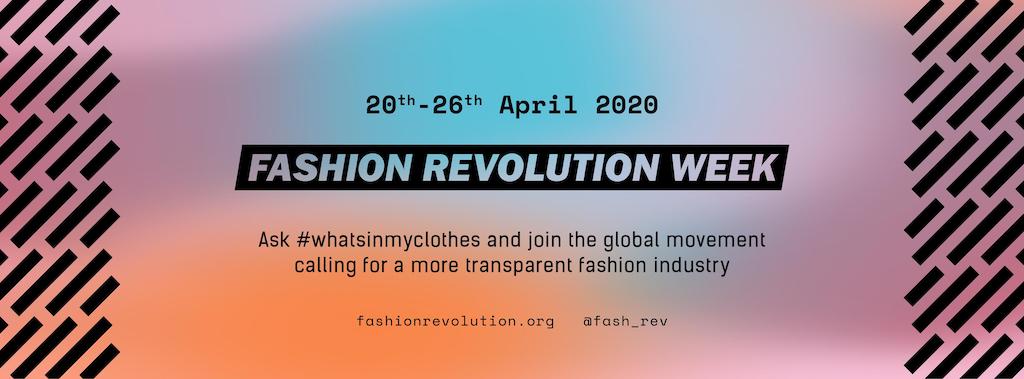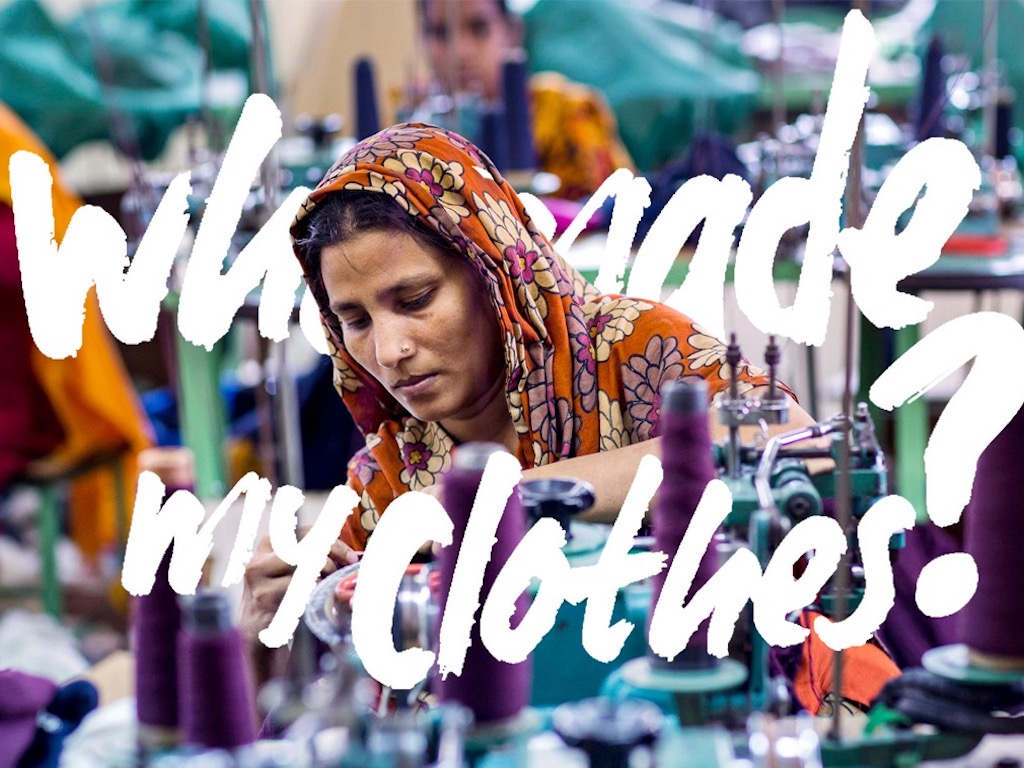3 Mins Read
Fashion Revolution, a campaign for clean, safe, sustainable and fair fashion, will soon be hosting its annual Fashion Revolution Week. Held on April 20 – 26, the week will focus on global collective action to hold fashion industry stakeholders accountable for their role in social and environmental injustice. This year, Fashion Revolution is demanding collective action to campaign for system-wide change across the fashion supply chain – to eliminate waste, pollution and exploitation associated with the industry.
Fashion Revolution was founded in 2013, following the collapse of the Rana Plaza factory complex building in Bangladesh on April 24 that year. More than 1,100 people died and 2,500 were injured – most were young garment workers making clothing for some of the biggest global fashion brands.
The aftermath of the tragedy revealed the complicity of the fashion industry. The demand for cheaply produced fast fashion from global brands meant that garment workers had to continue working in unsafe conditions, despite voicing their concerns about the hazardous building.
Since then, Fashion Revolution has been campaigning to demand a fair, safe and environmentally friendly fashion industry, and every year, Fashion Revolution Week – which falls on the anniversary of the Rana Plaza collapse – puts the issue on the global agenda.
This year, Fashion Revolution Week calls on millions across the world to campaign for structural change in the global fashion industry. Because the issues in fashion never fall on a single person or company, the initiative is all about using our collective voices to pressure for transformation of the entire system.
Firstly, citizens are encouraged to ask the question of #whomademyclothes on Twitter, and fashion labels and producers can respond with the hashtag #imadeyourclothes to demonstrate transparency throughout their supply chain.
To fight exploitation and modern slavery, participants of Fashion Revolution Week can also send emails to brands to prove that that are taking responsibility for fair salaries and safe working conditions for their workers. Especially amidst the Covid-19 crisis, many fashion brands have cancelled their orders that have been completed or are in production without paying garment workers who are already more vulnerable to the virus than other groups.
And safety isn’t just about guaranteeing fair wages or removing potential environmental hazards in the factories – it includes protecting workers from all forms of abuse. According to the Ellen MacArthur Foundation, of the 300 million people working in the clothing industry, 1 in 3 female garment workers have experienced sexual harassment in the past 12 months.
Beyond tackling social injustices, Fashion Revolution Week will spotlight the pollution and wastefulness of fashion. We are living in the midst of a climate emergency, yet global fashion consumption continues to drive over 10% of global carbon emissions, 92 million tonnes of landfill waste and 20% of all industrial water pollution worldwide.
This uphill trend relies on our culture of disposability – we now buy 60% more clothing than we did 15 years ago, and only wear it for half as long. Fashion Revolution Week therefore calls on every consumer to think twice before buying. Instead of purchasing new items, we can opt for circular fashion items via renting, swapping with others, upcycling and recycling fashion.
While the Covid-19 pandemic means that many of the public fashion swap events that were originally planned for the week have been cancelled, Fashion Revolution organisers are urging all of us to reflect and reinvent our consumption culture and voice our demands digitally online. Once the pandemic is under control, we can resume hosting local community and public fashion swap events to encourage recirculating clothes that have already been produced, and reducing the demand for new production.

What you can do to join Fashion Revolution Week
- Send an email to a brand / retailer to ask #WhoMadeMyClothes and what they are doing to honour existing contracts and ensure people throughout the supply chain are compensated during the Covid-19 crisis.
- Use your voice on Twitter to ask brands #WhoMadeMyClothes.
- Sign the manifesto for a Fashion Revolution.
- Get in touch with family and friends to host a clothing swap in the future, when it is safe to do so.
Lead image courtesy of Fashion Revolution.




